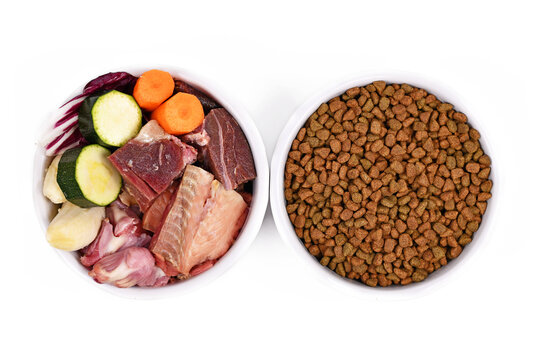What should I look for when it comes to ingredients for my pet’s food?
 When choosing pet food, here at 4 Paws Pantry & Spa, we feel it is essential to pay attention to the ingredients listed on the packaging. Start by prioritizing high-quality protein sources, such as named meats (e.g., chicken, salmon) over generic terms like “meat by-products.” Proteins are crucial for your pet’s overall health.
When choosing pet food, here at 4 Paws Pantry & Spa, we feel it is essential to pay attention to the ingredients listed on the packaging. Start by prioritizing high-quality protein sources, such as named meats (e.g., chicken, salmon) over generic terms like “meat by-products.” Proteins are crucial for your pet’s overall health.
Natural foods never contain by-products and none of our foods contain wheat or soy, the two highest allergen-causing grains. Hallmarks of quality foods include whole meats or meals, (presented in the first three ingredients), whole grains and whole vegetables. You will be able to detect signs of lower quality, less expensive sources of protein and fat. It’s best to avoid foods that contain generic proteins, like “animal”, “poultry-meal”, or “meat-meal.” No antibiotics, hormones or steroids should be present in any of your pet’s food source.
Unlike some leading brands, looking for food naturally preserved with Vitamin E and Vitamin C is essential. Many foods include synthetic or toxic preservatives, like BHA (Butylated hydroxyanisole), BHT (butylated hydroxytoluene), or ethoxyquin. It’s best to forego such ingredients, as they can be detrimental to your pet’s health.
Healthy fats are essential for your pet’s skin, coat, and overall health. Healthy fats play a crucial role in a dog’s diet, contributing to various aspects of their health and well-being. Look for sources like chicken fat, fish oil, or flaxseed.
Omega-3 and Omega-6 fatty acids are essential fatty acids that dogs cannot produce on their own and must obtain from their diet. Omega-3 fatty acids, found in fish oil, contribute to skin health, immune function, and can have anti-inflammatory effects. Omega-6 fatty acids, often present in plant-based oils, support skin health and contribute to a glossy coat.
 Certain fats, particularly those with anti-inflammatory properties like Omega-3s, can support joint health. This is especially important for dogs, particularly those with arthritis or joint conditions. Fats are also vital for brain development, especially in puppies and young dogs. DHA (docosahexaenoic acid), an omega-3 fatty acid, is often included in puppy foods for brain and vision development.
Certain fats, particularly those with anti-inflammatory properties like Omega-3s, can support joint health. This is especially important for dogs, particularly those with arthritis or joint conditions. Fats are also vital for brain development, especially in puppies and young dogs. DHA (docosahexaenoic acid), an omega-3 fatty acid, is often included in puppy foods for brain and vision development.
Ultimately, the key is to consider the overall ingredient list, prioritize high-quality protein sources, and choose a pet food brand that is known for transparency and using nutritious ingredients.
If you have any questions about dog or cat food nutrition, please do not hesitate to reach out to any of our staff here at 4 Paws Pantry & Spa, in our Olathe store. We can’t wait to help you find the perfect food for your pets, and start them on their happy, healthy journey!
